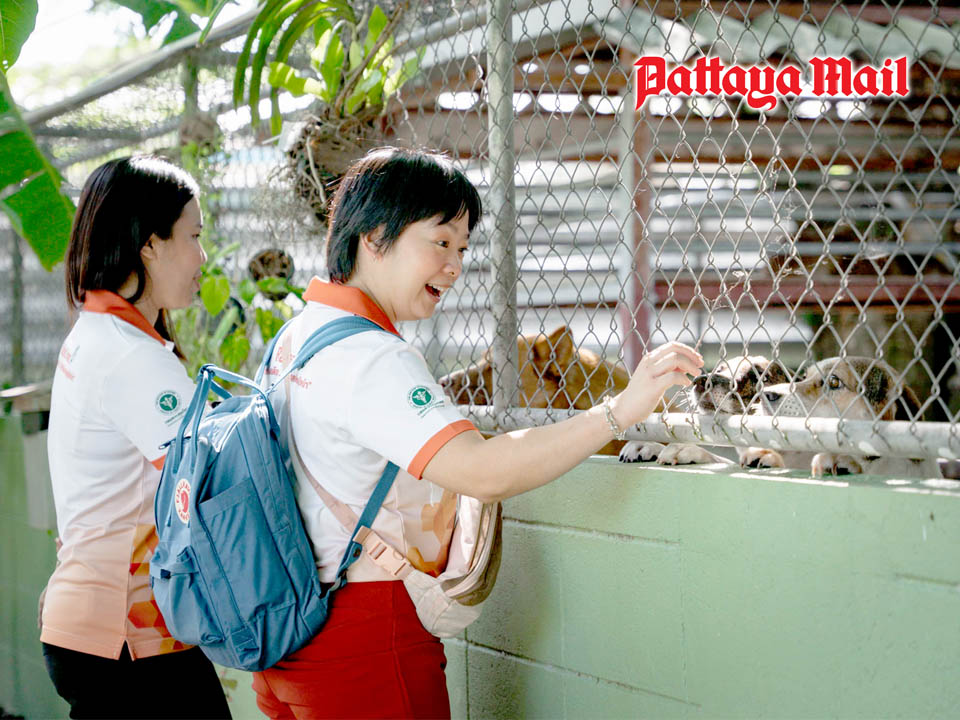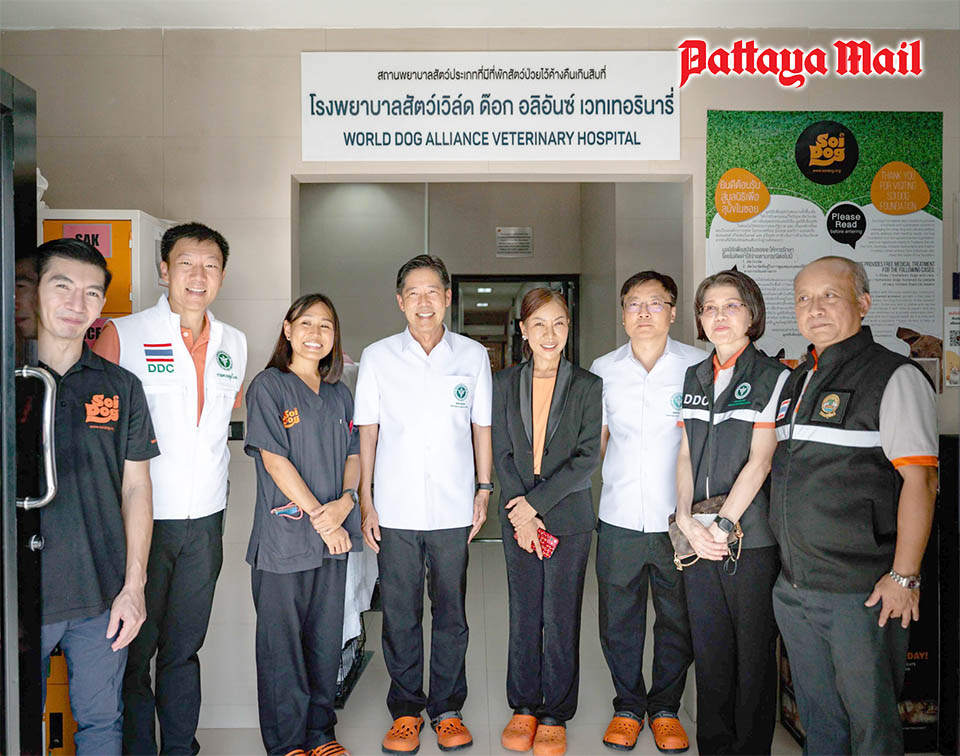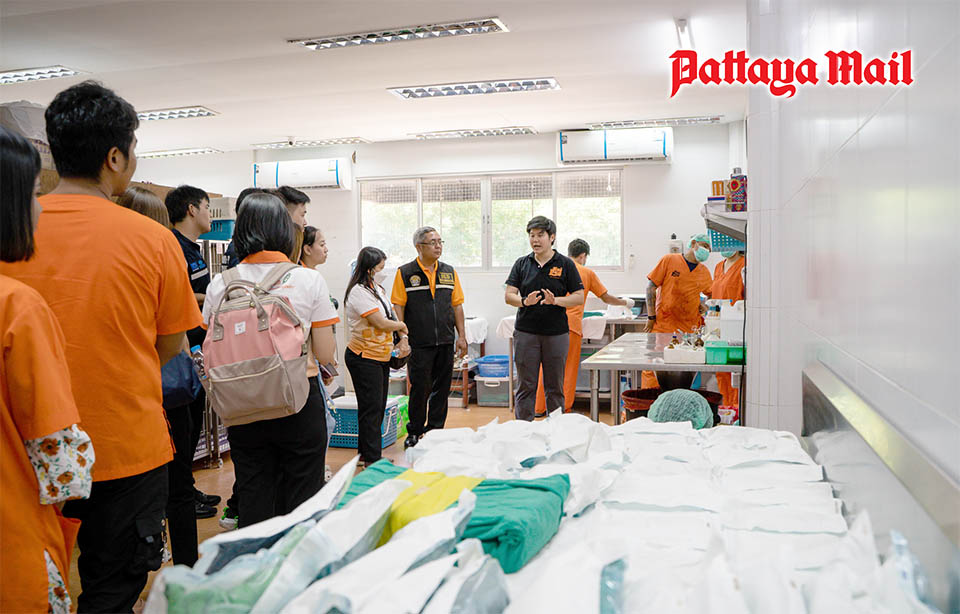
Phuket, Thailand – Director-General of the Department of Disease Control, Dr. Tares Krassanairawiwong, along with representatives from key agencies, recently visited the Soi Dog Foundation shelter in Mai Khao, Phuket. This visit followed a ‘Rabies Network Development’ workshop held in Phuket Town, focusing on establishing Phuket as Thailand’s first rabies-free province.
A major topic of discussion during the visit was Soi Dog’s impressive sterilization and vaccination program known as CNVR (Catch, Neuter, Vaccinate, Return). Since its establishment in 2003, this program has successfully spayed/neutered and vaccinated over 950,000 stray animals, making it the largest initiative of its kind globally. The program’s efforts have contributed to a significant reduction in the stray population and the transmission of communicable diseases, including rabies.
Leading authorities such as the World Health Organization (WHO) and the Global Alliance for Rabies Control (GARC) concur that the most effective method to eliminate rabies in humans is by eradicating it in dogs. Vaccinating 70% of dogs in an area can lead to the eradication of rabies. Similarly, reducing the stray dog population by neutering 80% of dogs in an area can result in a sustained decrease, provided a maintenance program is implemented. This requires leaving vaccinated and neutered dogs in place to establish herd immunity and prevent unneutered dogs from taking over territories.

“Soi Dog has been running the CNVR program for 20 years, and it has taken time to observe a reduction in the dog population on the island,” explained Dr. Nattanich Maneewong, Soi Dog’s Phuket CNVR Manager. “Our recorded data demonstrates that it is indeed effective. We use this information to monitor progress, plan ahead, and ensure the program’s success.”
The implementation of a large-scale program like this necessitates systematic recording and community engagement. These practices are essential for determining the number of unneutered animals in an area and coordinating operations accordingly.
During their visit, the delegation witnessed the practical application of these methods through Soi Dog’s 14 mobile sterilization clinics across southern Thailand and Greater Bangkok. Soi Dog’s rescue officers work in collaboration with local feeders to locate and humanely capture stray animals. These animals undergo spaying/neutering, vaccination, and receive ear tattoos indicating their participation in the program. After a successful recovery from surgery, the animals are safely returned to their respective territories, thereby contributing to the development of herd immunity.

The visiting delegation also familiarized themselves with Soi Dog’s other initiatives, including treatment, community outreach, education, and adoption. In a generous gesture, the Department of Disease Control donated medical equipment to support the foundation’s on-site hospitals in aiding stray animals in need.
As highlighted during the Rabies Network Development workshop, Phuket has only recorded a single case of rabies (in a dog) since the beginning of the century. This remarkable achievement is due in part to Soi Dog’s CNVR program, rendering the province eligible for evaluation as a rabies-free area. If successful, Phuket will become the first among Thailand’s 77 provinces to attain such a status.







